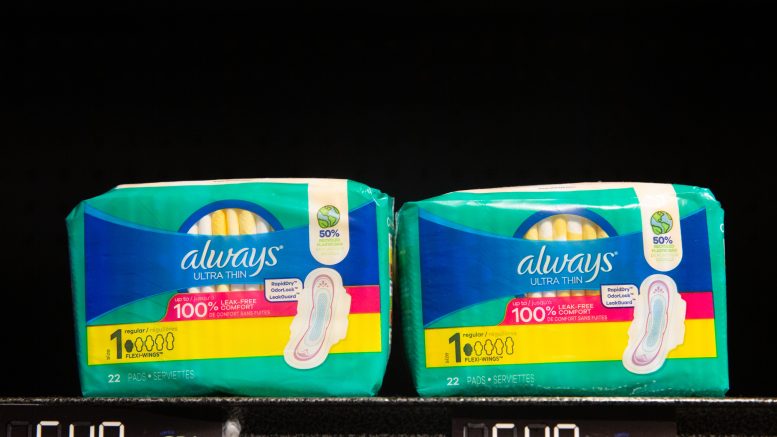GPA’s is a major convenience for U of M students at the Fort Garry campus. We rely on its presence to fulfil many of our needs, whether they be in the form of food, coffee or even medicines.
However, the store poses a moral dilemma — should a shop run by UMSU profit from the sale of medicines to students? While there are arguments to be made in favour of both sides, I think the student union should not profit from the sale of medicines.
Some pharmaceuticals at GPA’s are sold at a higher mark-up than they are at competing chains. A 22-pack of Always menstrual pads that might set you back $4.48 at an off-campus store like Giant Tiger could cost up to $6.49 at GPA’s.
Such markups aren’t restricted to just menstrual products, they extend to other essential personal care items and sexual wellness goods. At GPA’s, 24-packs of Advil tablets cost $8.99 compared to $5.97 at Walmart. Trojan pleasure packs of condoms are priced $4.89 at GPA’s and $3.99 on Amazon.
Why is this happening? One explanation might be that these markups are convenience fees. Located on the Fort Garry campus, GPA’s saves students a trip off-campus.
But there’s also a catch for students living on campus. GPA’s isn’t merely a convenient option. Often, it’s the only feasible option. Off-campus shopping can require a 20-minute-plus bus journey, which is not only time-consuming, but can also be challenging to fit into a student’s packed schedule.
So while these markups might be justifiable because GPA’s offers convenience, that justification is deeply flawed. It’s one thing to pay a premium for convenience, it’s another when that “convenience” is your only accessible source of essentials. The lack of options is important to consider when the primary clientele consists of students, many of whom are already struggling with tuition fees, accommodation costs and other expenses.
There is the possibility that operational costs lead to elevated prices. That is completely understandable, but the student union ought to hold itself to a higher standard and try its best to keep the prices as low as possible in the context of essential needs, including pharmaceuticals and sanitary products.
While the union does have operational expenses, it’s essential to remember that one of its goals is “providing a foundation on the basis of academia, lifestyle, and wellbeing through student groups, health awareness, and encouragement of scholastic optimization.”
I am calling for reconsideration and revaluation. I urge UMSU to reconsider its pricing strategy. They can likely afford to make less profit on medications, as GPA’s brought in $217,000 dollars in revenue in the 2022-23 year.
In my opinion, the ramifications of such high prices are multifaceted. For instance, these prices can contribute to financial strain. Students, especially those who are self-financed or depend on limited financial aid, may find these inflated prices burdensome.
High prices might deter students from buying essential medications. The increased price of condoms could deter students from engaging in safe sex on campus.
Discovering such markups corrodes the trust that students place in the student union. It’s disheartening to think that the student union, which should prioritize our well-being, might be taking advantage of our needs.
This issue is about ethics, responsibility and the core values that a student union should uphold. If our student union truly aims to nurture and support its students, revisiting the convenience store’s pricing strategy is not just recommended – it’s imperative.
As members of the union, we should try to do our best to ensure that the union is profitable and financially sustainable, but I don’t believe pharmaceuticals should be monetized. After all, safeguarding our health and well-being should never come at a marked-up price.



